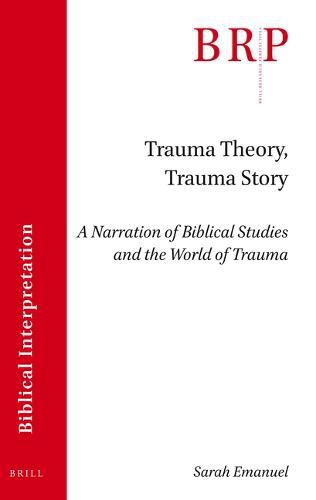Readings Newsletter
Become a Readings Member to make your shopping experience even easier.
Sign in or sign up for free!
You’re not far away from qualifying for FREE standard shipping within Australia
You’ve qualified for FREE standard shipping within Australia
The cart is loading…






This work offers an overview of trauma theory’s relations to biblical studies. In addition to summarizing the theoretical landscape(s), it provides exegetical forays into Ezekiel and, in part, Exodus and the Eucharist. The analysis will engage these materials’ traumatic ethoi, including their connections to trauma informed eating and queerings, so as to offer entryways into the wider critical conversation. While these exegetical foci may seem arbitrary, that is in part the point. As readers will see, trauma defies sense-making. Akin to postmodernist poststructuralist intertextualities, trauma cannot be flattened into neat narration. Trauma is capricious, leaving survivors to carry with them multivalent and even paradoxical connections to their experiences. This project thus attempts to perform trauma’s plurisignification as much as it tries to explain it, using a set of traditionally unexamined pairings to do so. While not an exhaustive survey on trauma theory and the Bible - such work could fill the space of multiple publications - the following work provides a representation of both the theory of trauma and its applications within the biblical field.
$9.00 standard shipping within Australia
FREE standard shipping within Australia for orders over $100.00
Express & International shipping calculated at checkout
This work offers an overview of trauma theory’s relations to biblical studies. In addition to summarizing the theoretical landscape(s), it provides exegetical forays into Ezekiel and, in part, Exodus and the Eucharist. The analysis will engage these materials’ traumatic ethoi, including their connections to trauma informed eating and queerings, so as to offer entryways into the wider critical conversation. While these exegetical foci may seem arbitrary, that is in part the point. As readers will see, trauma defies sense-making. Akin to postmodernist poststructuralist intertextualities, trauma cannot be flattened into neat narration. Trauma is capricious, leaving survivors to carry with them multivalent and even paradoxical connections to their experiences. This project thus attempts to perform trauma’s plurisignification as much as it tries to explain it, using a set of traditionally unexamined pairings to do so. While not an exhaustive survey on trauma theory and the Bible - such work could fill the space of multiple publications - the following work provides a representation of both the theory of trauma and its applications within the biblical field.